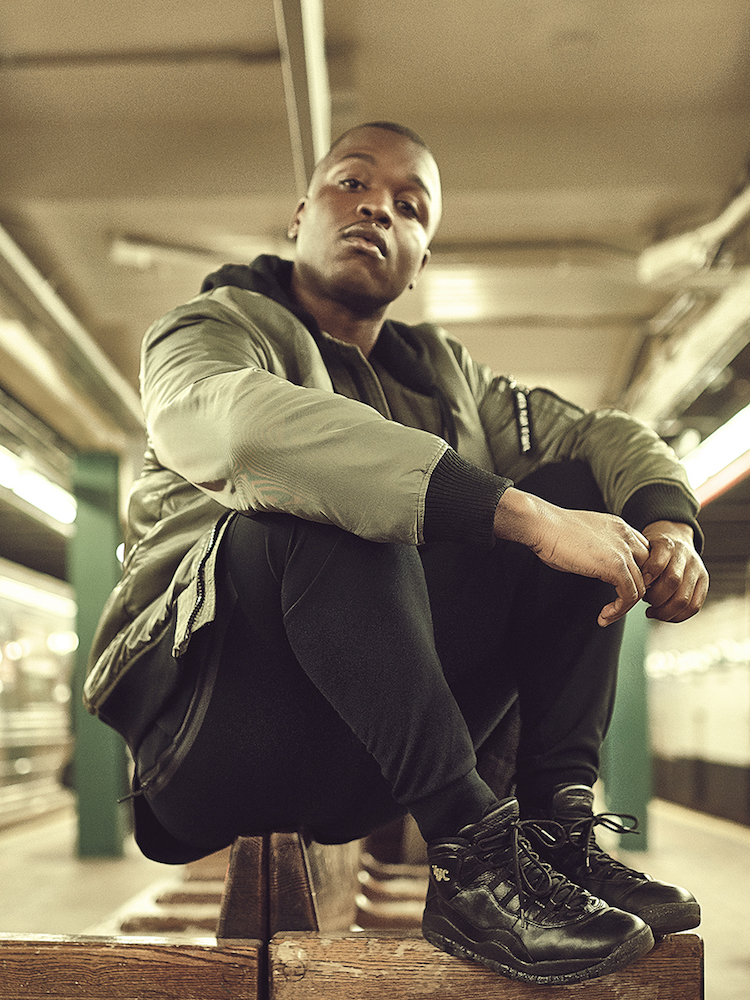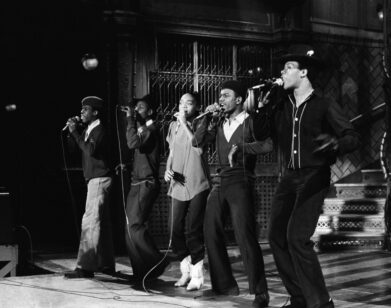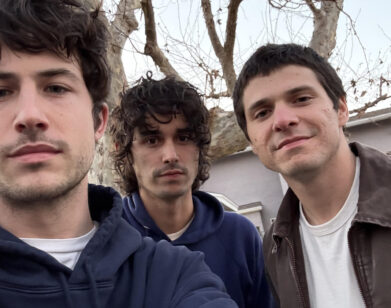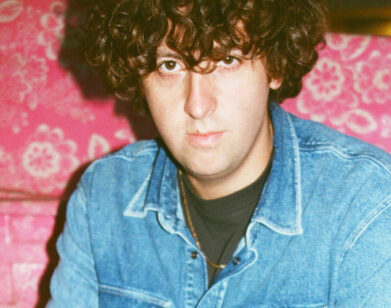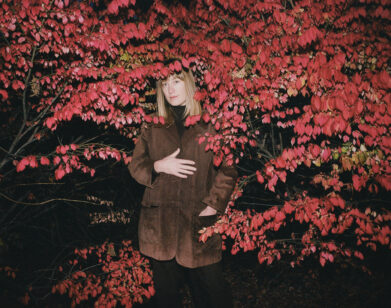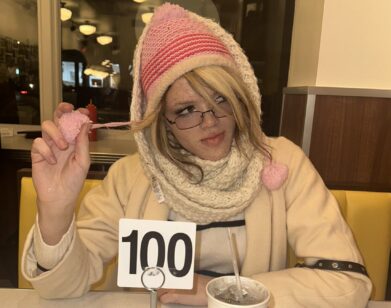Cakes Da Killa
CAKES DA KILLA IN NEW YORK, OCTOBER 2016. PHOTOS: JAMES RYANG. STYLING: JOHN MOORE/KRAMER+KRAMER. GROOMING: HIKARI TEZUKA FOR AVENUE/HONEY ARTISTS.
Cakes da Killa, the New Jersey rapper who spits rapid-fire, ruthlessly witty tongue twisters over pulse-racing, dance-inspired beats, has been working on his album Hedonism for almost two years. Though he’s already acquired loyal following through mixtapes like Easy Bake Oven (2011), The Eulogy (2013), and Hunger Pangs (2014), Hedonism is Cakes’ first official LP. Some of the songs are new, others he has been saving for something special. “With all the projects I do, they’re important to me at the time,” Cakes says over the phone. “This is a little different because it’s an album—making sure you don’t have any samples, and making sure that the energy is a good introduction,” he continues. “It’s kind of a retrospective in a sense because it has elements of all my past projects.”
EMMA BROWN: You released your first mixtape while you were still in college. Were you surprised by the reception it got?
CAKES DA KILLA: Yeah, because I was just doing it for fun. I was in college recording music as a joke, so I really didn’t think that a career was feasible—being able to travel. But I do realize that I have a talent for making music. It wasn’t anything expected, but I do think it’s deserved, if that makes sense. I started making music for fun maybe my senior year in college. I started rapping in high school, but it wasn’t anything serious.
BROWN: Did you get good feedback? Were people like, “Wow, you’re actually really talented”?
CAKES DA KILLA: I don’t think it was much of a forum for positive or negative feedback; it was mainly, “How can I make somebody laugh?” It wasn’t a serious thing where I needed people to give me feedback. I think when I dropped The Eulogy is when it became more [about] feedback because that’s when Pitchfork wanted to review it and things like that.
BROWN: When did you decide to pursue music full time?
CAKES DA KILLA: I never really decided. After college, I was still interning and trying to do club shit to pay my bills. This year, I made the decision that making music full time is what I’m going to do, even though that’s what I’ve always been doing. I never made a conscious decision until very, very recently.
BROWN: Do you think of yourself as a rapper?
CAKES DA KILLA: Yeah, now. I have to. I am a rapper. The reason why I was against the whole rapper title is because I know so many people who want to be rappers and they’re not. I didn’t choose to be a rapper; it’s just my talent. Not to sound egotistic, but I’ve gotten kind of good at it. It’s something that came naturally to me, but my rapping is rooted in my writing. I write a lot. I used to write a lot of poetry when I was younger, write for my school newspapers. Also reading is very important because you need to be on your word game if you want to be a lyricist. My love of words, alcohol, and stage antics basically cemented me as a rapper, but it wasn’t a career that I wanted to do. It was just, “I like to do all these things at one time.”
BROWN: What were your internships?
CAKES DA KILLA: I interned at Paper magazine, I was trying to do journalist work. Also living New York, everyone has a million hustles, so I was doing party promoting, working the doors at parties, doing that whole nightlife thing.
BROWN: You did an interview for us with Saint a couple of years ago and when asked whom you wanted to work with in the music industry, and said, “Whoever wants to work with me that doesn’t want their ego stroked.” Do you still feel that way?
CAKES DA KILLA: [laughs] Right. Do I still feel that way? Yeah. In the industry there’s this whole mentality of working with someone who can open the door for you, but my whole thing is that I like my work to speak for itself. So I still do have that same mentality. I’m a lot different in my career since that interview. To have someone like Diplo tweet “Cakes’ album is really cool” is cool, but in the same breath I still like what I do without anyone’s approval. It’s still good music.
BROWN: How did “Up Out My Face,” the song with Peaches, come about?
CAKES DA KILLA: I’ve been working with Peaches for a while as far as doing shows, maybe for the past two years. Everyone else seems to think that this is a new relationship, but me and her have been touring off and on for a while now. I was doing my album and I needed that heavy-hitter. We’d been in talks to do a record together for a while now so I was like, “We’re doing it, ’cause it’s on my album.” This was very strictly email—”Here’s a beat, do you like this?”—because she’s based in Berlin a lot, and even though I do spend some summers there, if we had to be in the same room, it definitely wasn’t going to work out [in terms of timing].
BROWN: Does doing things via email bother you at all?
CAKES DA KILLA: It depends. I’m a SoundCloud, online kind of artist. It’s not like back in the day when everyone was like linking up physically to do music. But with the album, I did have my first experience with meeting with a producer and us making things from scratch. There are two singles I did with Noah Breakfast, [“Talkin Greezy” and “New Phone (Who Dis),”] which was a cool experience. So it’s cool either way, I think. It depends on the relationship you have with the other person—not everybody is going to work the same way.
BROWN: How does your process work? Do you start with the beat or with the lyrics?
CAKES DA KILLA: It depends. Sometimes I start with the beat. Sometimes I can write something down and it takes me a while to figure out how I want to say it or the beat I want to say it to. I definitely like to live the experiences that I cover.
BROWN: I know you said that you started doing music just for fun. At this moment, what, for you, is the point of your music?
CAKES DA KILLA: I think what’s keeping me making music—the money is great, but I make music for the visibility. I think it’s very important that LGBT narratives are spoken from LGBT perspectives. I think that what I do is important as far as creating a lane for myself to be independent. It’s also chipping at the glass ceiling that a lot of other people have had to deal with before me and after me. I think each track tells a different story about what I’m going through. But overall it’s just me being young, my love of alcohol, and my love of turning up. [laughs]
BROWN: In terms of the glass ceiling, do you feel that things have changed at all? Have they gotten better or worse?
CAKES DA KILLA: It may look like things have gotten better, because everyone is semi-being appreciative. Not appreciative, but conscious of people being gender fluid and all those things. But I don’t think it’s completely better. I still have to do annoying things sometimes and explain things that I don’t feel I have to.
BROWN: Would you continue to make music if no one was listening to it?
CAKES DA KILLA: I don’t know. I was just thinking about this the other day. I was doing my music because it was fun, and I always was like, “If it becomes a business, or it becomes too demanding, or if people try to tell me what to do or control what I’m doing, I won’t do it.” But now I’m in the business and I do have to have these awkward conversations about how I look, how I talk. But I’m still here. I don’t know [whether] if I didn’t get paid, or my career didn’t keep going where it goes, if I would keep doing music. I would be an adult; I would have transitioned into adulthood and I would have had to pay my bills. So if I had to get a job at fucking Ikea, I would have probably been able to do that. [laughs]
HEDONISM IS OUT TODAY, OCTOBER 21, 2016. FOR MORE ON CAKES DA KILLA, VISIT HIS WEBSITE.

